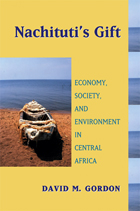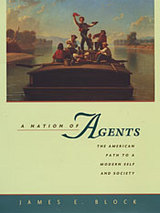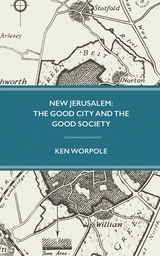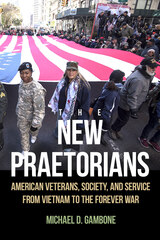5 start with N start with N

Nachituti’s Gift challenges conventional theories of economic development with a compelling comparative case study of inland fisheries in Zambia and Congo from pre- to postcolonial times. Neoclassical development models conjure a simple, abstract progression from wealth held in people to money or commodities; instead, Gordon argues, primary social networks and oral charters like “Nachituti’s Gift” remained decisive long after the rise of intensive trade and market activities. Interweaving oral traditions, songs, and interviews as well as extensive archival research, Gordon’s lively tale is at once a subtle analysis of economic and social transformations, an insightful exercise in environmental history, and a revealing study of comparative politics.
“A powerful portrayal of the complexity, fluidity, and subtlety of Lake Mweru fishers’ production strategies . . . . Natchituti’s Gift adds nuance and evidence to some of the most important and sophisticated conversations going on in African studies today.”—Kirk Arden Hoppe, International Journal of African Historical Studies
“A lively and intelligent book, which offers a solid contribution to ongoing debates about the interplay of the politics of environment, history and economy.”—Joost Fontein, Africa
“Well researched and referenced . . . . [Natchituti’s Gift] will be of interest to those in a wide variety of disciplines including anthropology, African Studies, history, geography, and environmental studies.”—Heidi G. Frontani, H-SAfrica

In this sweeping reinterpretation of American political culture, James Block offers a new perspective on the formation of the modern American self and society. Block roots both self and society in the concept of agency, rather than liberty, and dispenses with the national myth of the "sacred cause of liberty"--with the Declaration of Independence as its "American scripture." Instead, he recovers the early modern conception of agency as the true synthesis emerging from America's Protestant and liberal cultural foundations.
Block traces agency doctrine from its pre-Commonwealth English origins through its development into the American mainstream culture on the eve of the twentieth century. The concept of agency that prevailed in the colonies simultaneously released individuals from traditional constraints to participate actively and self-reliantly in social institutions, while confining them within a new set of commitments. Individual initiative was now firmly bounded by the modern values and ends of personal Protestant religiosity and collective liberal institutional authority. As Block shows, this complex relation of self to society lies at the root of the American character.
A Nation of Agents is a new reading of what the "first new nation" did and did not achieve. It will enable us to move beyond long-standing national myths and grasp both the American achievement and its legacy for modernity.

For the Suya, a Ge-speaking tribe of Central Brazil, nature and culture are perceived as fundamental opposites. Yet surprisingly few basic principles seem to underlie both Suya cosmology and society on their various levels—from the construction of villages and the classification of animals and humans to body ornamentation, dietary restrictions, myths, and curing chants.
In this integrated and far-reaching analysis, Anthony Seeger makes a significant contribution to the structural inquiry into lowland South American cosmologies begun by Levi-Strauss. He delineates various strata of the Suya world—perceptions of time and space, kinship, politics and medicine, groupings of animals, plants, and humans—and evolves a simple set of beliefs about nature and transformation that seems to govern all of them. His is an extremely rich and lucid account of the field methods, experiences, and observations that comprised the exploration into a hitherto unfamiliar tribe.

In 1902, Ebenezer Howard, renowned social reformer and founder of the garden movement, published Garden Cities of To-Morrow, a book originally to be called New Jerusalem and a work that became one of the most influential town planning documents of the twentieth century.
In New Jerusalem: The Good City and the Good Society, Ken Worpole reveals that utopian and visionary thinking, especially in relation to new forms of settlement and livelihood, has not gone away, even if it has gone underground.
With an unprecedented growth in the population of older people, along with increasing cultural and demographic change elsewhere in society, there is renewed interest in more convivial forms of urban design, as well as shared living. This interest draws on a long history of elective communities, including those influenced by the thought and works of Emanuel Swedenborg—a fascinating history with much to offer the architects and policymakers of today.

In an engrossing narrative that considers the military, economic, political, and social developments affecting military service after Vietnam, Michael D. Gambone investigates how successive generations have intentionally shaped their identity as veterans. The New Praetorians also highlights the impact of their homecoming, the range of educational opportunities open to veterans, the health care challenges they face, and the unique experiences of minority and women veterans. This groundbreaking study illustrates an important and often neglected group that is key to our understanding of American social history and civil-military affairs.
READERS
Browse our collection.
PUBLISHERS
See BiblioVault's publisher services.
STUDENT SERVICES
Files for college accessibility offices.
UChicago Accessibility Resources
home | accessibility | search | about | contact us
BiblioVault ® 2001 - 2024
The University of Chicago Press









